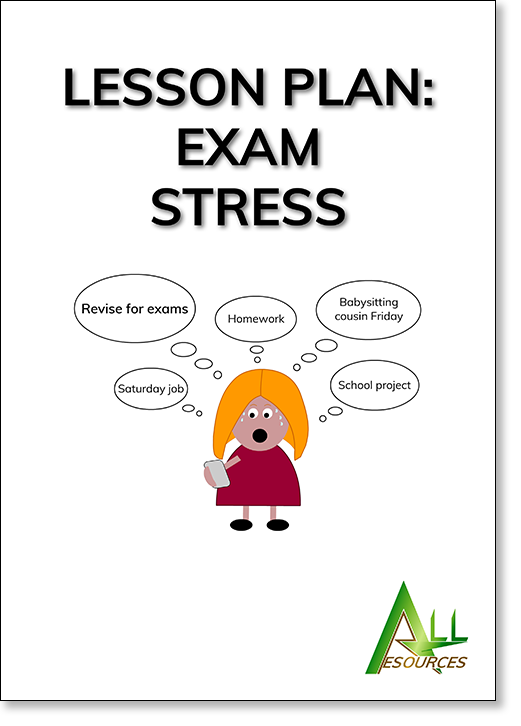Stress
We live in a busy, fast-paced world and stress is becoming more common as people try to cram too much into their daily lives. The cost of living crisis is also causing many people to become worried and stressed as they try to make ends meet. However, too much stress, and prolonged stress, can cause health problems and needs to be dealt with as soon as possible.

Exam Stress
This lesson plan provides information and advice on dealing with exam stress.
- Age range: 12 years and upwards
- Category: Lesson plan
- First published: 2022
- Pages: 17
- Duration: 55 mins – 1 hour
Hard copy: £10.99 add to basket
What is Stress?
Stress is part of the body’s ‘fight or flight’ response to real or imagined threats and is a way of dealing with an emergency. We can therefore say that stress is a defence mechanism that kicks into gear in response to a threat. There are many signs of stress on the mind and body and this stress response is actually a healthy way of protecting the body to give it an extra boost of adrenalin. It also helps concentration and ensures a person can rise to a challenge.
Stress Symptoms
There are a number of signs that indicate someone is dealing with high levels of stress — from physical to mental symptoms of stress. Although symptoms vary among people suffering from stress, too much stress can cause:
- Depression
- Anxiety
- Inability to concentrate
- Lack of sleep
- Mood swings
- Headaches
Chronic stress is where an individual is constantly on edge. They find it difficult to relax and are permanently in a state of heightened alertness. This is not a healthy way to be and untreated chronic stress can lead to:
- High blood pressure
- Heart disease
- Gastrointestinal disorders (IBS, ulcers etc)
- Skin disorders
- Weak immune system
- Generalised anxiety disorder
Dealing with Stress
It is vital that steps are taken to relieve high levels of stress and anxiety. Some of the following stress-management strategies can help:
- Regular exercise
- Mindfulness techniques
- Breathing exercises
- CBT (Cognitive Behavioural Therapy)
If symptoms of stress persist, it is necessary to seek medical help.


